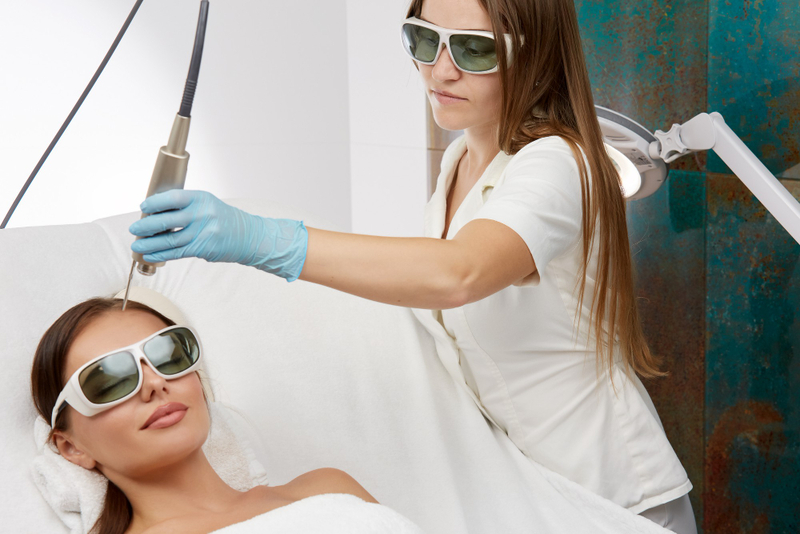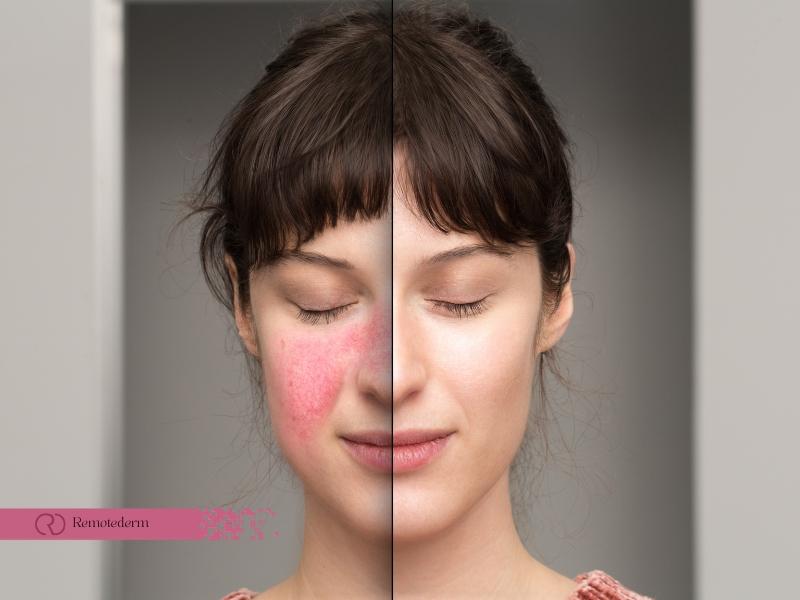Rosacea, a chronic skin condition that manifests as redness and visible blood vessels on the face, can be a source of frustration for many individuals in Canada. While there are various treatment options available, one that stands out for its effectiveness is laser treatment for rosacea. In this comprehensive guide, we will delve into the details of this revolutionary solution, addressing common concerns and shedding light on why it might be the ultimate answer for Canadians seeking relief from rosacea.
Understanding Rosacea
Before we plunge into the specifics of laser treatment, let’s first grasp the basics of rosacea. This skin disorder often leads to facial redness, bumps, and visible blood vessels, mainly affecting the nose, cheeks, forehead, and chin. Though its exact cause remains elusive, factors such as genetics, environmental triggers, and blood vessel abnormalities are believed to contribute to its development.
How Laser Treatment Works?
Laser treatment for rosacea is a cutting-edge approach available across Canada that provides a therapeutic solution to those suffering from this chronic skin condition. By using specialized light technology, this treatment targets the symptoms at their source, offering patients a potential reduction in the appearance of rosacea’s characteristic redness and visible blood vessels.

The Mechanism Behind Laser Therapy
Laser treatment for rosacea operates on the principle of targeted light energy. The laser emits concentrated beams of light that penetrate the skin, effectively reducing redness and blood vessels. The wavelength used in the procedure is carefully selected to target the hemoglobin in blood vessels without causing damage to the surrounding skin.
The Types of Lasers Used
Several types of lasers can be employed for treating rosacea. Among them, pulsed dye lasers and intense pulsed light (IPL) devices are the most common. Pulsed dye lasers target blood vessels, while IPL devices emit a broad spectrum of light, addressing both redness and pigmentation issues associated with rosacea.
Key Advantages of Laser Treatment for Rosacea
Embracing the innovative laser treatment for rosacea stands as a beacon of hope for many seeking reprieve from this skin ailment. This advanced approach carries multiple benefits that go beyond mere symptom relief, offering a transformative impact on the skin’s appearance and health.
- Long-lasting Results
One of the primary concerns individuals have is the permanence of the results. Fortunately, laser treatment for rosacea often provides long-lasting relief. The targeted destruction of blood vessels leads to a significant reduction in redness, and in many cases, the results can be permanent.
- Minimized Discomfort
One common question is whether the procedure is painful. Generally, patients experience minimal discomfort during laser treatment for rosacea. The sensation is often described as a mild stinging or snapping, and to ensure a pain-free experience, topical anesthetics are frequently applied before the procedure.
- Quick Recovery Time
Compared to other treatment options, the recovery time after laser therapy is relatively short. Most individuals can resume their daily activities immediately, with only mild redness or swelling subsiding within a day or two.
Addressing Concerns: Is Laser Treatment for Rosacea Right for You?
Laser treatment for rosacea is often viewed with a mix of hope and hesitation. To make an informed decision about this treatment, it’s essential to consider all aspects, from customization to potential risks, and to discern fact from fiction.
Tailored Approach
While laser treatment for rosacea offers promising results, its suitability varies from person to person. Consulting with a dermatologist is crucial to determining the most appropriate type of laser and the number of sessions required based on individual skin characteristics and the severity of the condition.
Potential Side Effects
Like any medical procedure, laser treatment for rosacea may have side effects. These can include temporary redness, swelling, or, in rare cases, changes in skin pigmentation. These adverse effects, however, are usually minor and temporary.

Consulting with a dermatologist is the pivotal first step in considering laser treatment for rosacea. Today’s technological advancements also mean that professional medical advice can be sought via online platforms, offering convenient access to expert opinions on rosacea treatment. With online rosacea treatment consultations, individuals can discuss their condition, obtain personalized treatment plans, and receive guidance on whether laser therapy is an appropriate course of action—all from the comfort of home.
Unraveling Myths: Debunking Common Misconceptions
Amid the vast sea of information regarding laser treatment for rosacea, misconceptions can often deter individuals from considering this effective therapy. Addressing these myths is essential to provide a clearer and more truthful picture of what one can expect from the procedure.
Myth: Laser Treatment Hurts
Contrary to popular belief, laser treatment for rosacea is not an excruciating procedure. Patients generally report mild discomfort that is well-tolerated. With advancements in technology and the use of cooling devices during the procedure, any sensations of discomfort are kept to a minimum.
Myth: Laser Treatment Is Not Permanent
Another misconception is that the results of laser therapy are temporary. While some maintenance may be required for optimal outcomes, the reduction in redness and visible blood vessels is often significant and enduring.
Final Thoughts
In conclusion, laser treatment for rosacea stands out as a powerful and effective solution for Canadians grappling with the challenges of this skin condition. With its ability to provide long-lasting results, minimal discomfort, and a swift recovery process, it has become a go-to option for individuals seeking to reclaim clear and healthy skin in Canada. Consulting with a dermatologist in Canada is key to ensuring the suitability of this treatment for your unique skin profile. The accessibility of advanced dermatological care, both in-person and through online consultations, empowers Canadians to take control of their skin health. Embrace the possibilities of laser therapy and say goodbye to the redness and frustration of rosacea, knowing that innovative solutions are readily available across Canada.
FAQs
Can laser treatment for rosacea help with skin texture issues caused by the condition?
Laser treatment for rosacea not only targets redness and visible blood vessels but can also improve skin texture. By stimulating collagen production, certain lasers can help diminish the roughness or unevenness often associated with rosacea.
Will laser treatment for rosacea remove facial redness caused by factors other than rosacea?
Laser treatment is specific to the vascular and pigmentation irregularities typical of rosacea. Redness due to other conditions, like acne or sunburn, may not respond in the same way and require different treatment approaches.
Is laser treatment for rosacea covered by health insurance?
Generally, laser treatment for rosacea is considered a cosmetic procedure and not covered by insurance. However, it’s recommended to consult with your insurance provider, as policies and coverage may vary.
How does laser treatment for rosacea differ from traditional medication treatments?
Unlike topical or oral medications that manage symptoms and may require ongoing use, laser treatment for rosacea seeks to provide a more permanent solution by targeting the underlying blood vessels associated with redness. It’s a non-pharmaceutical approach that can offer long-term results after a series of treatments.
